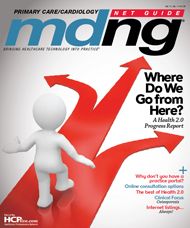Will We Really Have a Say? Assessing Obama’s Early Online Health Reform Effort
Late last year, an article was published focuseing on former Senate Majority Leader Tom Daschle, and his attempts to initiate a dialogue about health reform with the American people.
Late last year, the Washington Post published an article that focused on former Senate Majority Leader Tom Daschle, whom President-elect Barack Obama tapped to serve as Secretary of Health and Human Services, and his attempts to initiate a dialogue about health reform with the American people. In the initial stages of the effort, the presidential transition team received thousands of comments about health reform on its website, www.change.gov. Subsequently, Daschle invited Americans to participate in reform-related town hall meetings over the Christmas holidays.
Daschle is bullish about the conversation the transition team has initiated. According to the Washington Post, he recently observed that it would have been impossible a few years ago to have nearly 8,500 health reform-related discussions over the holiday season.
While Daschle’s excitement about the health reform effort is justified, the Washington Post correctly noted that the transition team’s initiative is reminiscent of another project, The Citizen’s Health Care Working Group. From 2005 to 2006, the Group conducted 84 town meetings and published the results of an online survey of 14,000 Americans. The Group then produced detailed health reform recommendations and delivered them to President George Bush and Congress. Despite this, public officials rejected the recommendations.
If the Working Group spent so much time and effort polling the American people and conducting town hall meetings about reform several years ago, why is Daschle repeating this effort? In addition, Daschle appears to have well-developed ideas about health reform that he may be eager to implement. In his 2008 book, Critical: What We Can Do about the Health-Care Crisis, Daschle suggests that the US government form a Federal Health Board that would make critical decisions about medical care using evidence-based medicine.
So, if Daschle’s mind is already made up and he has a good understanding of what Americans want in terms of health reform, is the transition team’s effort to generate dialogue and conversation much ado about nothing? Perhaps not. Daschle may be less interested in collecting innovative health reform ideas from the masses than mobilizing a grassroots movement that will support the incoming administration’s health reform plan.
According to the Washington Post, Daschle said “lawmakers will be more likely to take up health reform if there is enough pressure from voters.” He added that the health reform meetings will “add to the sense of urgency. ‘It will lead to members of Congress taking note. It will lead to governors taking note. It’s going to lead to a greater degree of commitment on the part of elected people.’”
Like other members of the incoming Obama administration, Daschle recognizes the power of social media and other online technologies to aggregate grassroots support for candidates and political agendas. He may hope that engaging the public in this manner will generate more support for the administration’s efforts. However, there is no guarantee that the people who have joined Daschle’s nascent health reform movement will back the administration’s plans—especially if they feel that their suggestions have been ignored.
Clearly, the American people should play a significant role in efforts to reform the US health system. However, in order for this to occur, Daschle and his team will need to demonstrate that they clearly understand what the majority of Americans want and adjust their policy prescriptions appropriately. Otherwise, the grassroots will be loath to climb aboard the Daschle health reform express.
Reform is a term that means vastly different things to different groups and stakeholders. Do you think the new administration’s health reform priorities, such as they are, have physicians’ best interests in mind? In your opinion, what areas of our healthcare system are in most need of reform? E-mail us to share your opinions.
Fard Johnmar is the founder of Envision Solutions, LLC, a full-service healthcare marketing communications consulting firm. Visit www.envisionsolutionsnow.com to learn more about the company and the services it offers.
To read more of Fard’s insights on the use of social media and other online technologies in a variety of healthcare applications, visit www.hcplive.com and type “Fard Johnmar” in the search box to retrieve an archive of columns.
